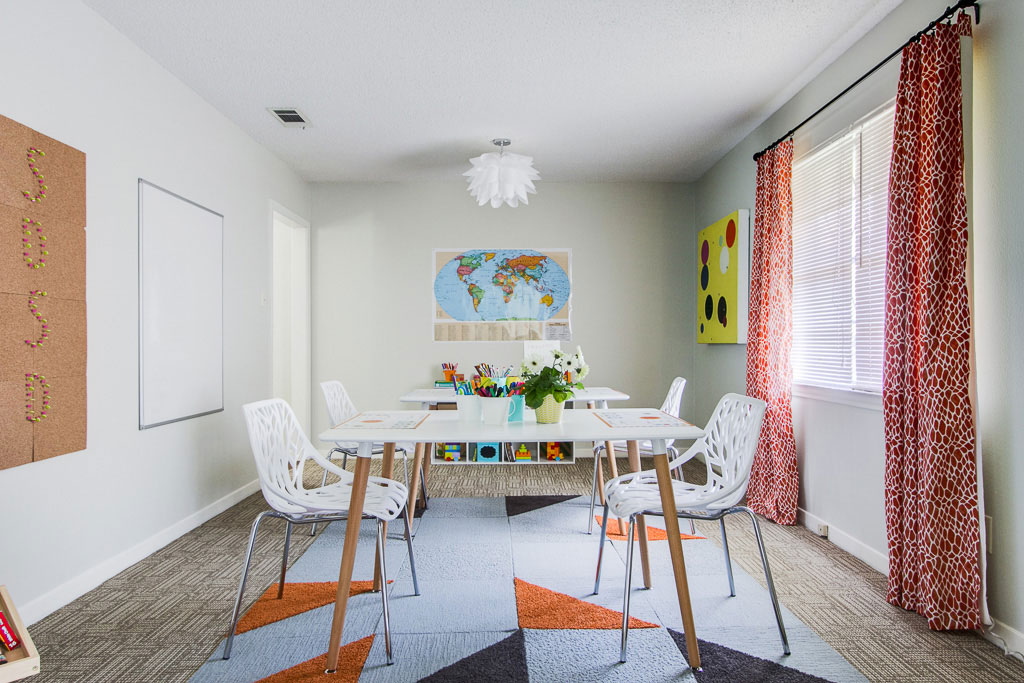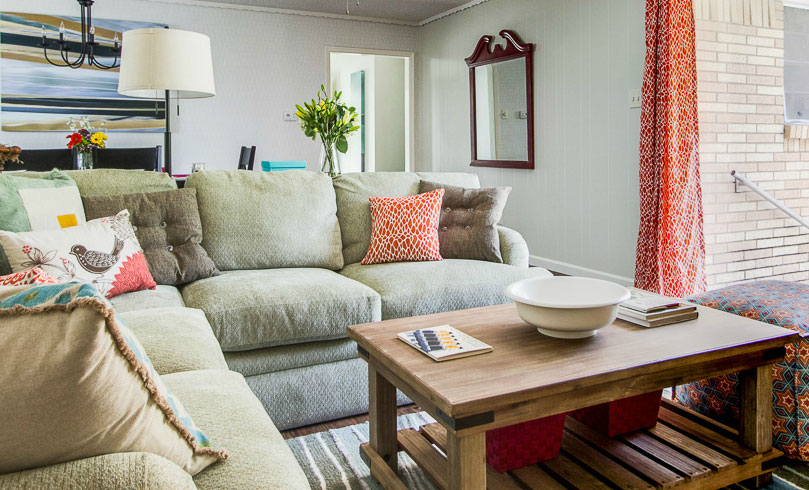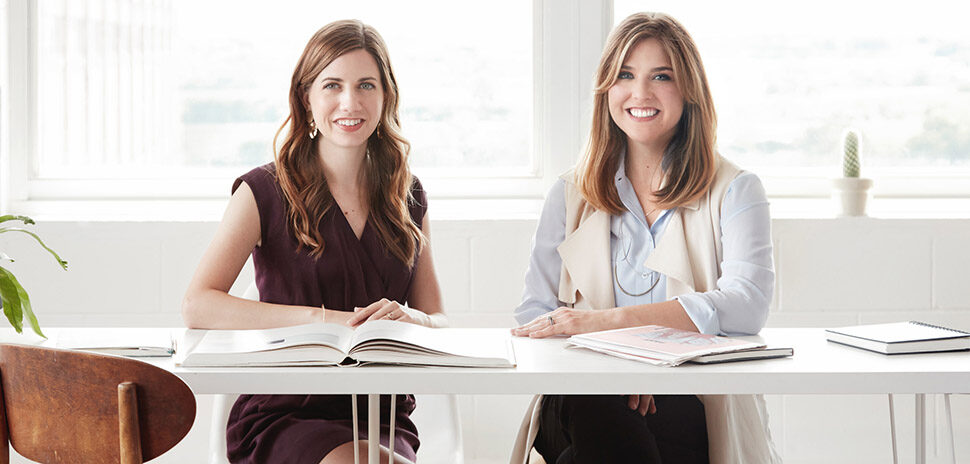As children, we’re told the difference between “wants” and “needs” with clear-cut simplicity: all you “need” is food to eat and a roof over your head.
Now imagine that you have both of those things, but very little else. Your kids sleep on a broken mattress on the floor. Tattered sheets hang in your windows. Your family never eats together, because you only own two plates and a few forks. You don’t have the means to celebrate holidays or host playdates. Simply put, your home—a place that should be a refuge and comfort—is a place no one actually wants to come home to. Imagine trying to raise happy, healthy children in an environment like that.
“If you only have ‘need to haves,’ you’re not thriving or growing,” Lisa Robison, founder of Dwell with Dignity, says. “You’re not creating a generational family.”
“The more I thought about it, the more I realized, it’s often the people who could benefit most from a beautiful, thriving environment are the ones who can afford it the least,” Lisa Robison says. “I wondered: ‘Could I do what I love for a family and make a difference for them?’”
Nonprofit agency Dwell with Dignity seeks to remedy this problem by providing beautifully decorated and fully furnished homes to needy families. Here’s how it works: Dwell with Dignity works with groups in Dallas like Genesis Women’s Shelter and Promise House. Once a family has graduated through one of these programs (that is, they’ve attained necessary life skills, obtained a job, paid first and last month’s rent, etc.), they’re deferred to Dwell with Dignity. The family is interviewed to find out what kind of environment they dream of thriving in, and then the planning, designing, creating, and acquiring begins. Dwell with Dignity approaches each project like a real interior design project—Robison says they won’t use furniture or accessories that she wouldn’t be proud to have in her own home—and when move-in rolls around, volunteers know precisely where every piece of furniture will fit in the space. The house or apartment is decorated over three days’ time, with volunteers doing everything from hanging draperies to ironing bedding to unpacking dishes and washing them. Some of the items are donated, but many—including upholstered items, baby cribs, and kitchenware—are purchased new. The families are also provided with cleaning supplies so that they can maintain their new environment.
“What we find is that families start thriving right away,” Robison says. “Kids do their homework at the kitchen table or a desk. They get a good night’s sleep because they’re sleeping in bed. They start to socialize in the home—they can finally invite other kids over to their houses. It instills confidence for Mom and children.”

This living room was designed by Dwell With Dignity. Photo: Dwell With DIgnity/nousDECOR
Dwell with Dignity began in 2009 as a small grassroots project in Robison’s garage. She’d taken time off from her professional interior design career when her son was born, but he’d recently gone off to kindergarten and Robison missed the creativity of her work. She didn’t want to jump right into a full-time position, so she decided to find a way to give back to the community.
“The more I thought about it, the more I realized, it’s often the people who could benefit most from a beautiful, thriving environment are the ones who can afford it the least,” Robison says. “I wondered: ‘Could I do what I love for a family and make a difference for them?’”
Dwell with Dignity has grown a lot since then. The agency tackles about 18 projects a year, and is currently working on its 75th project. Money is raised via individual donors, plus during a big annual design community-supported fundraiser called Thrift Studio, where interior designers assemble vignettes from Dwell with Dignity’s warehouse and sell the home décor at a ticketed event and subsequent pop-up shop. The agency derives about a third of its operating funds from that event.

A look at the newly designed bedroom. Photo: Dwell With DIgnity/nousDECOR
Dwell with Dignity keeps up with the families it has helped by hosting holiday events and via regular interviews, checking in with families after two weeks in their new environments, after six months, after a year.
“When we reveal a home to family, we try to tell them, ‘The reason this is happening is because you’re doing a good job, you’ve been nominated because of your success, we have confidence you can strive for more,’” Robison says. “One of the things we find is that when we talk to the families again later, the parents will tell us they got promoted, they want to move to a bigger place, they’re saving to get a house. They have confidence and the feeling that all their hard work is coming together.”
To donate items or volunteer, go here.
For a daily dose of what’s new and next in Dallas-Fort Worth innovation, subscribe to our Dallas Innovates e-newsletter.































